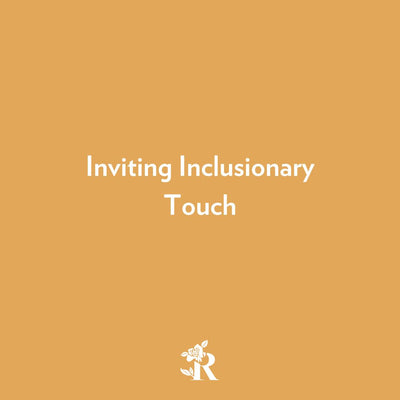The Alternative Unions Replacing Marital Contracts with the State (and the Legal Consequences)
We are thrilled when our beloveds decide they are each other’s one and only! True love it’s one of life’s great blessings. But love doesn't need the state's approval, and in fact, marriage contracts with the state are becoming less and less popular in the US (where marriage rates have fallen 60% since 1970) .
Here are some forms of loving unions replacing formal marriages:
Various alternative ceremonies and commitments have gained popularity as people seek more personal, flexible, or unconventional ways to express their union and commitment beyond traditional state-sanctioned marriage contracts.
Commitment Ceremonies: These ceremonies are similar to weddings but don't result in a legally binding marriage. Couples often exchange vows and rings, and the event can be as formal or casual as they wish. Commitment ceremonies are popular among couples who wish to express their love and commitment without the legal implications of marriage.
Handfasting Ceremonies: Originating from ancient Celtic tradition, handfasting is a symbolic unity ritual in which a couple's hands are tied together to symbolize their connection and devotion to each other. While it can be part of a formal wedding, it can also stand alone as a non-legal commitment ceremony.
Domestic Partnership Ceremonies: Some regions recognize domestic partnerships, which can provide some legal benefits similar to those of marriage. While not a marriage, a domestic partnership ceremony celebrates the commitment between two individuals. The legal recognition and benefits of domestic partnerships can vary significantly between jurisdictions.
Spiritual or Religious Union Ceremonies: These ceremonies focus on the spiritual or religious aspect of a union and may not be legally binding. They are tailored to the couple's spiritual or religious beliefs and can include rituals and traditions important to them. For instance, some Native American, pagan, or New Age practices offer union ceremonies that are deeply spiritual but not recognized by the state.
As nice as these are, they also come with some caveats, because the state privileges marriages over other kinds of unions. Unmarried people and the single at heart have a lot of disadvantages.
These ceremonies are deeply meaningful, but they don't always provide the legal benefits or protections that a state-sanctioned marriage does. Couples often choose these ceremonies to align with their personal values, beliefs, or circumstances. But, marriage is not just a cultural or emotional commitment; it's also a legal status that opens the door to a wide range of benefits and protections (and responsibiities). In the United States, the legal implications of marriage are extensive, affecting areas from taxes to healthcare, and from inheritance to social benefits.
Legal Benefits of Marriage in the United States
Marriage offers numerous legal advantages that can significantly impact a couple's life. These range from financial and estate planning benefits to rights and privileges in the realms of employment, healthcare, housing, and more.
Here are some of the key legal benefits married couples in the United States typically enjoy:
Tax Benefits: Including the ability to file joint income tax returns and enjoy potential tax savings.
Estate Planning Benefits: Such as inheriting a share of your spouse's estate and benefiting from estate and gift tax exemptions.
Government Benefits: Including receiving Social Security, Medicare, and disability benefits, among others.
Employment Benefits: Such as obtaining insurance through a spouse's employer and taking family leave.
Medical Benefits: Including the right to make medical decisions for a spouse and hospital visitation rights.
Death Benefits: Like consenting to after-death examinations and making burial arrangements.
Family Benefits: Including filing for stepparent or joint adoption and receiving spousal or child support in case of divorce.
Housing Benefits: Like living in neighborhoods zoned for "families only."
Consumer Benefits: Including receiving family rates for various types of insurance.
Other Legal Protections: Such as suing a third party for wrongful death of a spouse or receiving crime victims' recovery benefits.
These benefits are enshrined in law and, in many cases, are exclusive to legally married couples. They reflect the legal system's recognition of the married couple as a single unit, a status that often simplifies processes and enhances rights and protections.
Legal Disadvantages or Responsibilities of Marriage
Here are some of the potential legal disadvantages associated with marriage:
Liability for Spouse's Debts: In some jurisdictions, particularly those with community property laws, spouses may be held responsible for each other's debts. This means that one spouse's financial obligations, whether incurred before or during the marriage, could impact the other's financial status.
Complexity in Dissolution: Divorce can be a complex, lengthy, and expensive process. It often involves the division of assets, spousal support, child custody, and other legal matters that are not typically a concern for unmarried couples when they separate.
Tax Penalties: While many couples benefit from tax breaks, some may experience the so-called "marriage penalty," where their combined income pushes them into a higher tax bracket, resulting in a higher tax rate compared to if they were filing as single individuals.
Loss of Benefits: Some individuals, especially those receiving certain types of government benefits or assistance, may lose their eligibility upon getting married. For instance, getting married can affect one's eligibility for Social Security benefits, Medicaid, and other need-based assistance programs.
Automatic Inheritance: Without a will, a spouse often stands to inherit a significant portion, if not all, of the deceased spouse's estate. While many view this as a benefit, it can be a disadvantage if it's against the deceased's wishes or if it leads to family disputes.
Limited Autonomy in Legal and Financial Decisions: Marriage often means that certain decisions, such as those regarding property, financial transactions, or medical emergencies, are shared or require the consent of both spouses. This can limit individual autonomy in some cases.
Responsibility for Spouse's Actions: In some scenarios, one spouse may be held legally responsible for the actions of the other, such as in the case of civil lawsuits or certain types of taxes.
Impact on Estate Planning: Marriage can complicate individual estate plans, especially for those with substantial assets or children from previous relationships. It can lead to conflicts between the desire to provide for the new spouse and the wish to allocate assets to children from previous relationships.
Replicating Marriage Benefits Through Alternative Contracts
While marriage comes with a built-in legal framework, those opting for alternative forms of commitment often wonder if they can secure similar benefits through other legal means. While it's true that certain aspects of the marriage package can be mimicked or approximated through legal contracts, wills, and other arrangements, there are inherent limitations to this approach:
Tax and Estate Planning: Some tax benefits and estate planning advantages, especially those involving federal law, are typically exclusive to marriage.
Government and Employment Benefits: Many benefits provided by the government or through employment, like Social Security survivor benefits or spousal insurance, are hard to replicate outside of marriage.
Medical and Death Benefits: While healthcare directives can grant decision-making rights, the automatic rights and recognitions granted to spouses are not easily replicated.
Family and Housing Benefits: Legal documents can define custody and property arrangements, but the inherent legal recognitions and simplifications that come with marriage are unique.
Consumer and Other Legal Benefits: Some consumer benefits and legal protections are based on policies or laws that specifically recognize marriage.
Contracts and legal arrangements can provide a degree of protection and can specify wishes and intentions. However, they often require more effort to set up, may not be as universally recognized, and are not as automatically enforceable as the rights and benefits granted by marriage. The legal system's treatment of married couples often simplifies legal processes and protections in ways that individual contracts may not.
While marriage offers a comprehensive package of legal benefits and responsibilities, the landscape of personal relationships is diverse, and the legal system is slowly adapting to recognize different forms of partnerships and households. For those considering alternative forms of commitment, it's crucial to understand the limitations of trying to replicate the benefits of marriage through contracts and other legal means. Consulting with a legal professional is advisable to navigate this complex terrain and make informed decisions that best fit one's personal situation and needs. As society continues to evolve, the legal recognition of different forms of relationships is likely to become a more prominent issue, reflecting the diversity and richness of human connections.
PS, if this doesn't sound fair to you, learn more about the UNMARRIED EQUALITY MOVEMENT HERE.











